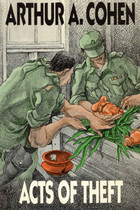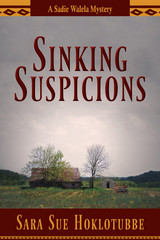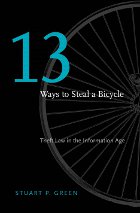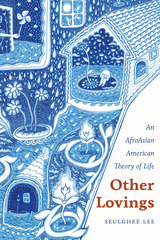
"[Acts of Theft] ranges from the lost world of the Austrian aristocracy . . . to a thick-walled hacienda in the jungles of Mexico in the 1950s. . . . Cohen has resurrected the special man, the one for whom experience is a search an an intellectual problem, the man who deceives himself grandly and discovers the fact when it may be too late. . . . Cohen's writing is as beautiful and complicated as it is possible for writing to be. Rarely, these days, do novelists risk so much so successfully."—K. Deborah Taub, Baltimore Sun
"One of the rare novels that one can begin to reread as soon as the last page is finished. By unfolding the drama of an artist obsessed by the authenticity and perfection of his work, Arthur A. Cohen recalls to us, in fact, the destiny of all human existence. Acts of Theft ranks with the best novels of the post-war period."—Mircea Eliade
"Acts of Theft is a very elaborate story of cops and robbers—but it aspires to much more and its aspirations are largely fulfilled. The parallels that spring to mind are Crime and Punishment and Les Mesérables."—Joseph McLellan, Washington Post

American taxation is unfair, and it is most unfair to the very people who critically need its support. Not only do taxpayers with fewer resources—less wealth, power, and land—pay more than the well-off, but they are forced to fight for their rights within an unjust system that undermines any attempts to improve their position or economic standing. In The Black Tax, Andrew W. Kahrl reveals the shocking history and ruinous consequences of inequitable and predatory tax laws in this country—above all, widespread and devastating racial dispossession.
Throughout the twentieth century, African Americans acquired substantial amounts of property nationwide. But racist practices, obscure processes, and outright theft diminished their holdings and their power. Of these, Kahrl shows, few were more powerful, or more quietly destructive, than property taxes. He examines all the structural features and hidden traps within America’s tax system that have forced Black Americans to pay more for less and stripped them of their land and investments, and he reveals the staggering cost. The story of America’s now enormous concentration of wealth at the top—and the equally enormous absence of wealth among most Black households—has its roots here.
Kahrl exposes the painful history of these practices, from Reconstruction up to the present, and tells, for the first time, the story of Black Americans’ experiences as taxpayers and their fight for a more fair and equitable system for raising and spending the public’s money. This is a history that deepens our understanding of the disadvantages and persistent inequalities that African American households continue to face and reveals hidden engines of economic inequality in America. Detailing the hows and whys of America’s profoundly unequal tax system, The Black Tax equips readers with the knowledge needed to combat inequality and injustice today.

Iconic lawman Lance Smith joins a community-wide search, but Buck is nowhere to be found. As evidence mounts against her old friend, Sadie rushes to return home to help—only to be delayed by an island-wide earthquake and her own sinking suspicions.
A diverse cast of characters weave together a breathless story of murder, thievery, and the toll of war on the human spirit. In her effort to restore balance to her neighbor’s life, Sadie not only uncovers the truth, but unravels much more than a murder.

A thousand-year-old story of Krishna and his wife Satyabhama retold by the most famous court poet of the Vijayanagara Empire.
Legend has it that the sixteenth-century Telugu poet Nandi Timmana composed Theft of a Tree, or Pārijātāpaharaṇamu, which he based on a popular millennium-old tale, to help the wife of Krishnadevaraya, king of the south Indian Vijayanagara Empire, win back her husband’s affections.
Theft of a Tree recounts how Krishna stole the pārijāta, a wish-granting tree, from the garden of Indra, king of the gods. Krishna does so to please his favorite wife, Satyabhama, who is upset when he gifts his chief queen a single divine flower. After battling Indra, Krishna plants the tree for Satyabhama—but she must perform a rite temporarily relinquishing it and her husband to enjoy endless happiness. The poem’s narrative unity, which was unprecedented in the literary tradition, prefigures the modern Telugu novel.
Theft of a Tree is presented here in the Telugu script alongside the first English translation.

The first English translation of a thousand-year-old story of Krishna and his wife Satyabhama, retold by the most famous court poet of the Vijayanagara Empire.
Legend has it that the sixteenth-century Telugu poet Nandi Timmana composed Theft of a Tree, or Pārijātāpaharaṇamu, to help the wife of Krishnadevaraya, king of the south Indian Vijayanagara Empire, win back her husband’s affections. Timmana based his work on a popular millennium-old Krishna tale.
Theft of a Tree recounts how Krishna stole the wish-granting pārijāta tree from the garden of Indra, king of the gods. Krishna takes the tree to please his favorite wife, Satyabhama, who is upset when he gifts his chief queen a single divine flower. After battling Indra, he plants the pārijāta for Satyabhama—but she must perform a rite temporarily relinquishing it and her husband to enjoy endless happiness.
This is the first English translation of the poem, which prefigures the modern Telugu novel with its unprecedented narrative unity.

Theft claims more victims and causes greater economic injury than any other criminal offense. Yet theft law is enigmatic, and fundamental questions about what should count as stealing remain unresolved—especially misappropriations of intellectual property, information, ideas, identities, and virtual property.
In Thirteen Ways to Steal a Bicycle, Stuart Green assesses our current legal framework at a time when our economy increasingly commodifies intangibles and when the means of committing theft and fraud grow ever more sophisticated. Was it theft for the editor of a technology blog to buy a prototype iPhone he allegedly knew had been lost by an Apple engineer in a Silicon Valley bar? Was it theft for doctors to use a patient’s tissue without permission in order to harvest a valuable cell line? For an Internet activist to publish tens of thousands of State Department documents on his Web site?
In this full-scale critique, Green reveals that the last major reforms in Anglophone theft law, which took place almost fifty years ago, flattened moral distinctions, so that the same punishments are now assigned to vastly different offenses. Unreflective of community attitudes toward theft, which favor gradations in blameworthiness according to what is stolen and under what circumstances, and uninfluenced by advancements in criminal law theory, theft law cries out for another reformation—and soon.
READERS
Browse our collection.
PUBLISHERS
See BiblioVault's publisher services.
STUDENT SERVICES
Files for college accessibility offices.
UChicago Accessibility Resources
home | accessibility | search | about | contact us
BiblioVault ® 2001 - 2025
The University of Chicago Press









